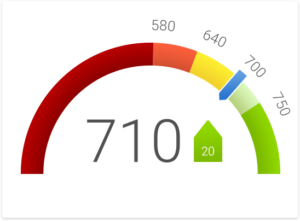 Today’s top story: Student loan pause is extended. Also in the news: A new episode of the Smart Money podcast on what our listeners accomplished this year, 6 Instagram tips for small-business owners, and for young adults, building credit starts now.
Today’s top story: Student loan pause is extended. Also in the news: A new episode of the Smart Money podcast on what our listeners accomplished this year, 6 Instagram tips for small-business owners, and for young adults, building credit starts now.
Student Loan Pause is Extended
Payments will resume May 2nd.
Smart Money Podcast: What Our Listeners Accomplished This Year, Part 2
This week’s episode continues our celebration of our listeners’ money wins in 2021.
6 Instagram Tips for Small-Business Owners, by Small-Business Owners
Learn how to build an effective small-business Instagram strategy that takes up minimal time.
For Young Adults, Building Credit Starts Now
Building your credit while you’re young will pay off in the future, and it may be easier than you think.
 Today’s top story: 6 credit card scams and how to avoid them. Also in the news: A new episode of the SmartMoney podcast on COVID impulse spending and building credit while paying off debt, how Black Friday shopping could look very different this year, and making a plan to repay your borrowed 401(k) money.
Today’s top story: 6 credit card scams and how to avoid them. Also in the news: A new episode of the SmartMoney podcast on COVID impulse spending and building credit while paying off debt, how Black Friday shopping could look very different this year, and making a plan to repay your borrowed 401(k) money. Today’s top story: Is it okay to never have a credit card? Also in the news: How to organize important documents simply and safely, can a credit card company lower your credit limit, and how to try and prevent your eviction.
Today’s top story: Is it okay to never have a credit card? Also in the news: How to organize important documents simply and safely, can a credit card company lower your credit limit, and how to try and prevent your eviction. Today’s top story: Smart ways to establish credit in 2020. Also in the news: 3 strategies to recover from holiday overshopping, the pros and cons of merging money when married, and how to downgrade your Chase card without losing your points.
Today’s top story: Smart ways to establish credit in 2020. Also in the news: 3 strategies to recover from holiday overshopping, the pros and cons of merging money when married, and how to downgrade your Chase card without losing your points.  Today’s top story: 6 ways to build your credit in less than an hour. Also in the news: Investing in international stocks, why you should invest in the stock market even if it scares you, and where to find the best Memorial Day sales.
Today’s top story: 6 ways to build your credit in less than an hour. Also in the news: Investing in international stocks, why you should invest in the stock market even if it scares you, and where to find the best Memorial Day sales. Today’s top story: 5 back-to-college lessons on building credit. Also in the news: Focus on just one thing in order to retire early, 4 salary negotiation tactics that actually work, and what you need to know before switching to a cheaper phone plan.
Today’s top story: 5 back-to-college lessons on building credit. Also in the news: Focus on just one thing in order to retire early, 4 salary negotiation tactics that actually work, and what you need to know before switching to a cheaper phone plan. Today’s top story: Why your newborn doesn’t need to be on your credit card account. Also in the news: Why paying more tax today could be your best AMT strategy, common retirement mistakes seen by financial planners, and how credit card minimum payments are meant to keep you in debt forever.
Today’s top story: Why your newborn doesn’t need to be on your credit card account. Also in the news: Why paying more tax today could be your best AMT strategy, common retirement mistakes seen by financial planners, and how credit card minimum payments are meant to keep you in debt forever.